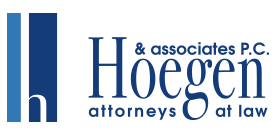Starting or expanding a business in Pennsylvania involves more than just a great idea and the right location. One of the critical yet often overlooked aspects is understanding zoning laws and regulations. Zoning laws determine how properties within certain areas can be utilized, directly affecting where and how businesses operate. Navigating these laws can be complex, but with the right legal guidance, business owners can stay compliant, minimize disputes, and effectively leverage zoning regulations to their advantage.
Hoegen & Associates, P.C., is well versed in zoning laws and helping clients with commercial needs. If you do business in Northeast PA or Central PA and need trusted legal assistance, connect with our firm today.
Understanding Pennsylvania Zoning Laws
Zoning laws in Pennsylvania, governed primarily by local municipalities under the authority granted by the Pennsylvania Municipalities Planning Code (MPC), regulate land use and development. These regulations categorize areas into residential, commercial, industrial, agricultural, and mixed-use zones. Each category has specific permissible uses, development standards, and operational guidelines businesses must follow.
While federal laws provide broader guidelines, they generally defer zoning authority to local and state governments. However, federal laws can still influence zoning indirectly, especially concerning environmental regulations, accessibility standards under the Americans with Disabilities Act (ADA), and historic preservation mandates.
Achieving Business Compliance
Business compliance with local zoning laws begins with understanding the precise requirements of the zone in which your property is located. This includes reviewing permitted uses, setback requirements, building height limits, signage regulations, parking and loading requirements, and landscaping rules. Municipal zoning offices can provide zoning maps and ordinances, but interpretation and compliance might still pose challenges for business owners unfamiliar with legal terminologies and technicalities.
Conditional Use Applications
Some businesses may find their desired operations fall into a “conditional use” category within a zoning district. Conditional uses are permitted in specific zones but require the business to meet additional criteria to gain approval. The process involves applying to the local zoning hearing board or governing body, submitting site plans, and demonstrating that your business meets outlined conditions, such as safety, minimal traffic impact, or compatibility with neighboring properties.
Expert legal guidance is particularly beneficial during this application process, as our skilled DelCo, PA land use and zoning lawyer can clearly articulate your business’s alignment with municipal objectives and zoning requirements.
Variances & Special Exceptions
If your business doesn’t precisely fit zoning guidelines, you might consider requesting a variance or special exception. A variance grants permission to deviate from certain zoning requirements due to specific hardships associated with your property, such as unique shape, size, or topography. Obtaining a variance typically involves proving that compliance with current zoning requirements would pose unnecessary hardship, that the variance is minimal, and that it will not negatively affect public welfare.
Special exceptions differ slightly from variances, as they’re already outlined as permissible deviations within zoning ordinances, provided specific criteria are met. Approval generally involves showing that the exception aligns with community standards and does not adversely affect neighboring properties.
Handling Zoning Disputes
Zoning disputes can emerge even after thorough compliance efforts, often arising from disagreements with neighbors, municipal officials, or competing businesses. These disputes might involve allegations of zoning ordinance violations, boundary disagreements, or disputes over conditional uses or variances granted by zoning boards.
Resolving such disputes usually involves appearing before a zoning hearing board or, in some cases, engaging in mediation or court litigation. Having qualified legal representation is crucial for effectively presenting your case, protecting your rights, and navigating potentially lengthy and contentious proceedings.
Common Pitfalls In Zoning Compliance
A significant challenge for business owners arises from misunderstanding or misinterpreting zoning ordinances. Errors such as assuming grandfather clauses automatically apply, neglecting required permits, or misunderstanding signage restrictions often lead to violations and legal complications.
Another common mistake is overlooking changes in local zoning ordinances. Zoning laws evolve due to municipal planning decisions, community development goals, or legislative changes. Staying updated and proactively adapting your business operations accordingly can prevent costly disputes and violations.
Legal Guidance As A Strategic Advantage
Navigating Pennsylvania’s zoning laws successfully requires careful planning, comprehensive knowledge, and often, expert legal assistance. Attorneys experienced in zoning law not only guide businesses through the compliance and application processes but also offer strategic advice to leverage opportunities. For example, knowledgeable counsel can identify beneficial zoning incentives, assist in securing favorable conditions, or help businesses proactively address potential disputes.
Engaging a seasoned legal team early in the process reduces the likelihood of zoning issues significantly disrupting your business plans. With proper legal guidance, businesses can confidently address requirements, smoothly navigate conditional use applications, effectively seek variances or special exceptions, and efficiently handle disputes.
Summary & Choosing Hoegen & Associates
Zoning laws in Pennsylvania play a critical role in shaping the business landscape. They present opportunities and challenges that require precise navigation. Whether securing permits, addressing conditional uses, obtaining variances, or resolving disputes, proactive engagement with zoning regulations supports business stability and growth. Partnering with an experienced and dedicated attorney can position a business not only to comply with complex zoning requirements but also to maximize their operational potential within Pennsylvania’s diverse municipalities. Engaging a seasoned legal team early in the process reduces the likelihood of zoning issues significantly disrupting your business plans. With proper legal guidance, businesses can confidently address zoning requirements, smoothly navigate conditional use applications, effectively seek variances or special exceptions, and efficiently handle disputes.
If your business needs professional guidance on zoning laws, contact Hoegen & Associates, P.C. and request a consultation today.

